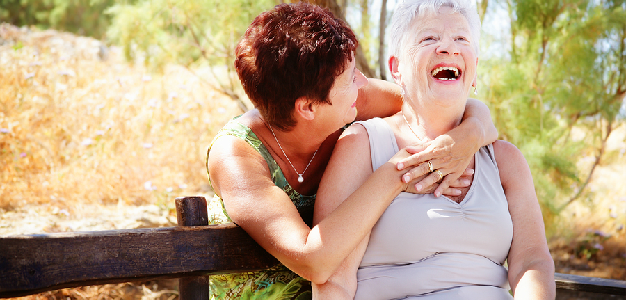The results of an annual online survey into Australian women’s health were recently published and they might surprise you.
The survey is carried out by the Victorian-based Jean Hailes Foundation. Each year the questions change a little, and in 2019 quite a few addressed mental health.
I should point out that of the roughly 10,000 women who responded, most were born in Australia and live in capital cities or nearby regional areas. About two-thirds were from Victoria or New South Wales. They’re also clearly health conscious and use online technology. In addition, about three-quarters described their financial situation as ‘living comfortably’ or ‘doing alright’.
So they don’t represent all women. At the same time, their answers give us some useful insights.
The respondents were split into five age groups: 18 to 35, 36 to 50, 51 to 65, 66 to 79, and 80 plus. The biggest contingent was the 51 to 65s who made up 41.6% of the total, and the smallest was women over 80 who comprised less than 1%.
Back to what the results say about older women’s health issues. For example, don’t most of us blame our difficulty concentrating or our mind going blank on our age?
Believe it or not, it was the youngest group who reported experiencing this the most in the previous four weeks. Thirty-one percent of the 18 to 35s said it happened at least weekly, and older women reported it considerably less often.
What about feeling irritable or having difficulty relaxing? We might assume that women dealing with menopause would’ve topped the results for that question.
Not so. Again, it was the younger women who did, and the incidence dropped off with age.
Loneliness? Similar downward trend with age, except that 13.6% of the over 80 group felt lonely at least once a week, compared with 12% of the 66 to 79-year-olds. But 20.4% of 18 to 35-year-olds felt that way.
The youngest group were also more likely to have ever experienced depression or anxiety.
When it came to feeling nervous, anxious or on edge, 64% of women aged 18 to 35 said they’d had that experience every day, nearly every day or at least weekly in the previous four weeks.
Difficulty sleeping? Again, we might think it would be the 51 to 65-year-olds who’d stand out, but they’re pipped by the 36-50 age group. Admittedly some of the women in that group could be in perimenopause.
It’s not that older women were floating through life without a care or health concern in the world. They had their share of issues such as obesity and arthritis, and around 40% regularly felt anxious.
But what stands out is how stressful young women feel their lives are. While we might assume that poor sleep, difficulty concentrating or possibly loneliness are more likely among older women, stress is making them bigger issues for young women.
Photo Source: Bigstock

